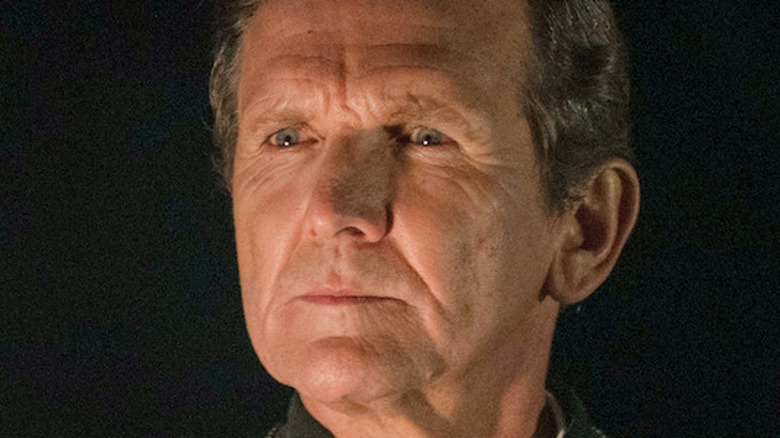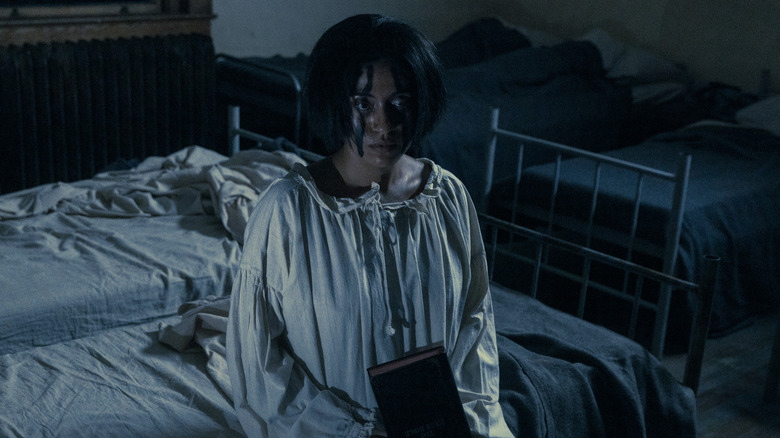1923's Sebastian Roché Doesn't Take The Cruelty Of His Character Lightly
Taylor Sheridan's slate of series for the Paramount Network might be wildly popular, but they aren't for the faint of heart. "Yellowstone" is rife with violence, whether it's perpetrated by or against the powerful Dutton family. The 19th century-set prequel "1883" is no less shocking, with sexual violence, disease, and the ruthlessness of mother nature all coalescing to create a uniquely brutal exploration of the American West.
"1923" is the third entry in the "Yellowstone" universe and premiered in December 2022. From the get-go, it was clear that the show was cut from the same cloth as its forebears.
"1923" stars Harrison Ford and Helen Mirren as Jacob and Cara Dutton, the former of whom serves as the Montana Commissioner of Agriculture. Villains and dreamers alike populate the world of "1923," and one such villain is Father Renaud, played by Sebastian Roché. Renaud operates the brutal residential school that is a site of mental torment and physical abuse for Native American girls. As an actor, Roché doesn't take the part — and the responsibility that comes with it — lightly.
Roché apologized to the Native American actors before shooting
Just as "1883" paints an unrelenting picture of Westward expansion, "1923" illuminates other grim historical realities, including the inhumane residential schools that sought to forcibly assimilate and abuse young Native Americans (via Al Jazeera). In "1923," this abuse is in part perpetrated by Father Renaud. "Our business is not only entertainment, we need to tell stories," Sebastian Roché told TV Insider. "In 1923, those residential schools were a blight on our history."
Before shooting the disturbing scenes, Roché paused to address the Native American actresses. "Before I did anything, my instinct told me that I had to actually apologize before doing the scene." He continued, "I just turned to them and said, 'I want to apologize to you, because we are about to recreate one of the darkest chapters in your history, besides of course, the genocide. And I just wanted to apologize in front of you, because this is a necessary chapter, but it must be very painful [to recreate].'"
For Roché, treating the scene with tact was his responsibility as an actor. He also cited the Tulsa Race Massacre scene in "Watchmen" as a series that did the challenging work of depicting a shameful moment in history. "I understand that these scenes are horrific to watch, but they're necessary," said Roché. "It can't always be shootouts and romance in our show. There is a serious matter we're talking about."
If you or anyone you know has been a victim of sexual assault, help is available. Visit the Rape, Abuse & Incest National Network website or contact RAINN's National Helpline at 1-800-656-HOPE (4673).

